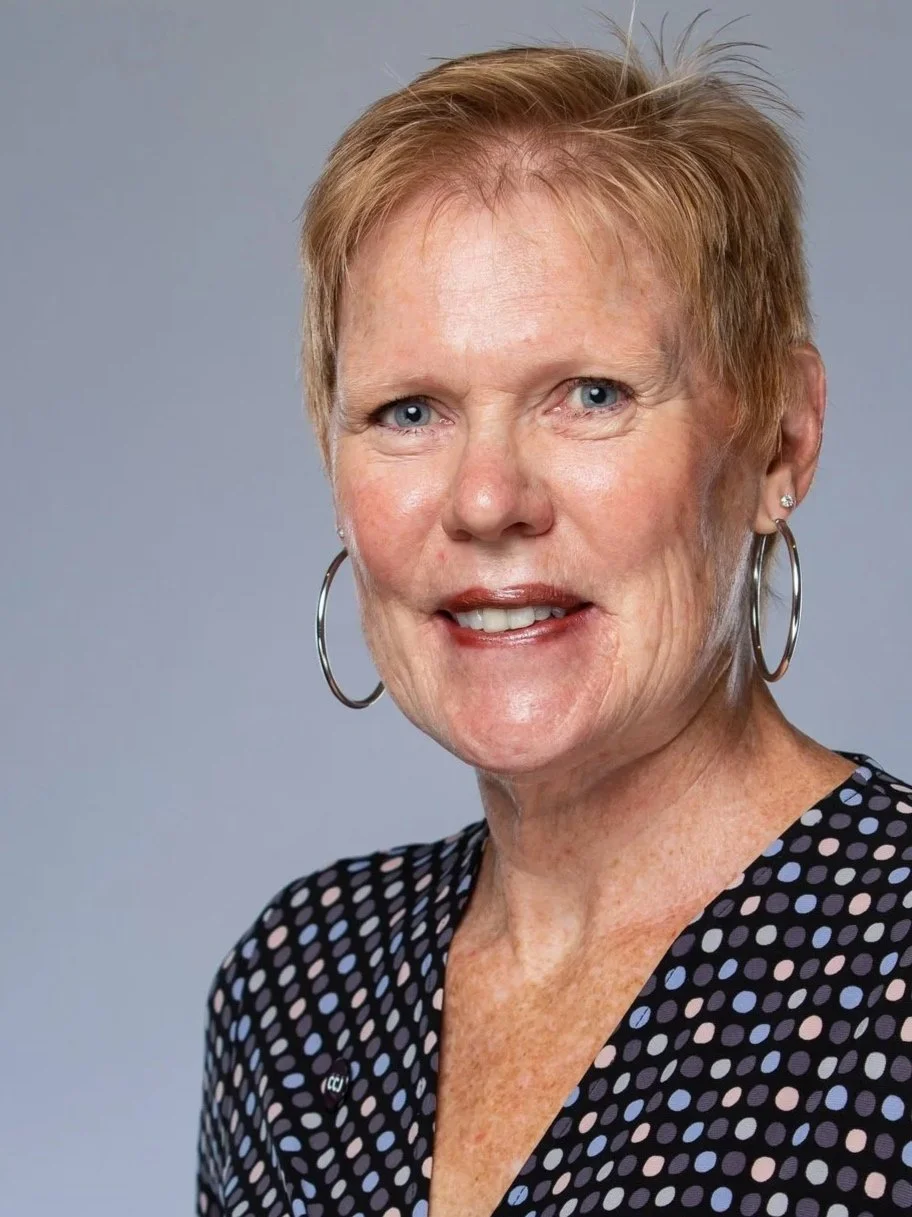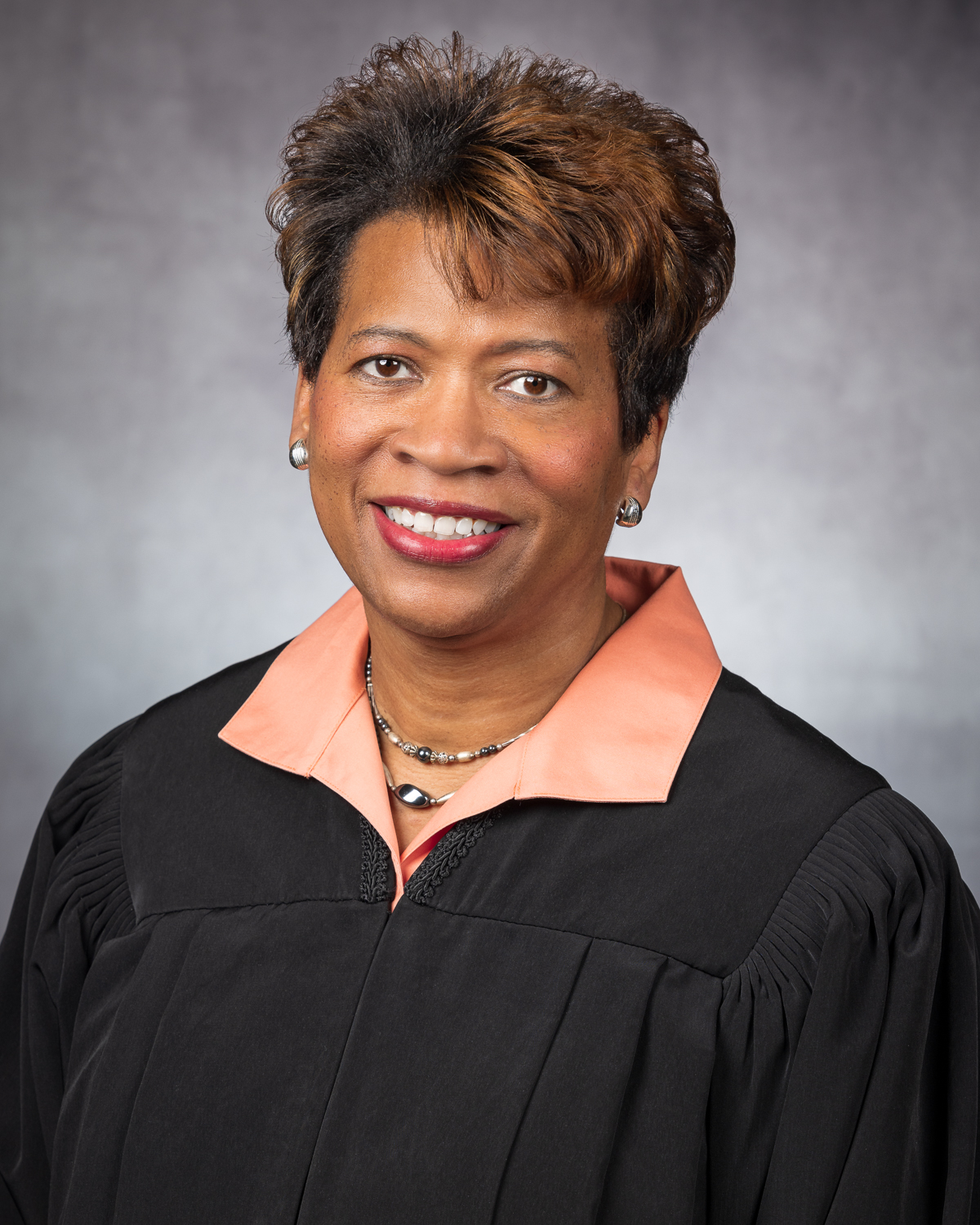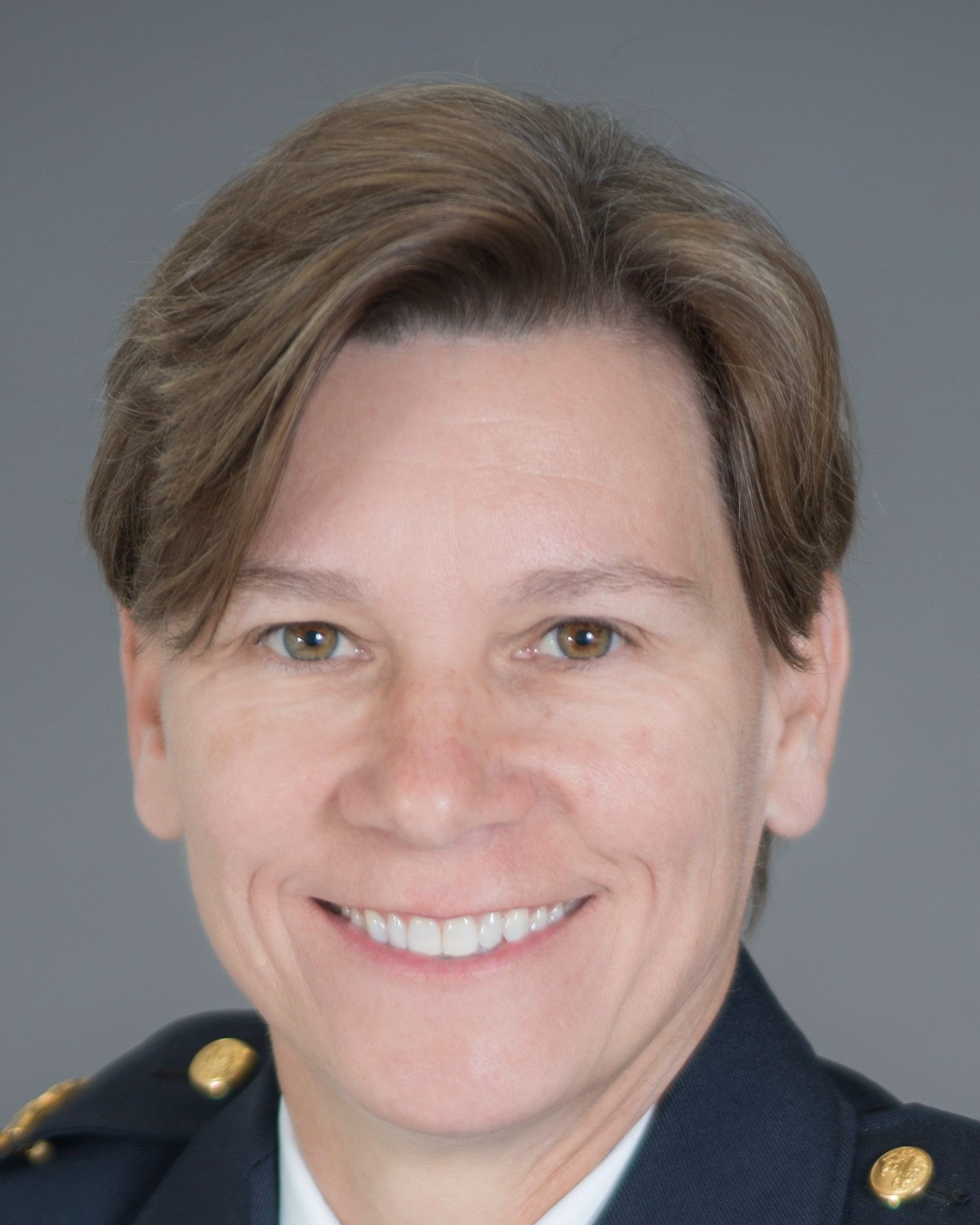The Cleveland Police Monitoring Team is a diverse and seasoned team of former and current law enforcement professionals, social scientists, lawyers, organizational change experts, psychologists, and data and technology experts.
Monitoring Team
Christine M. Cole
Monitor
Christine M. Cole is a self-employed criminal justice consultant and Senior Advisor at 21CP Solutions. Christine is an expert in police management, accountability, oversight, governance, evidence-based assessments, and community engagement. She previously served as Executive Director and Vice President at the Crime and Justice Institute (CJI), a division of Community Resources for Justice (CRJ), where she led the organization and a division of 50 for eight years. Before joining CJI, Christine served as Executive Director of the Program in Criminal Justice Policy and Management at Harvard Kennedy School. From 2008 to 2014, she co-chaired and facilitated the NIJ-funded Executive Session on Policing and Public Safety, which produced 20 original papers.
Christine is a co-author of the widely cited 2008 study on the Los Angeles Consent Decree and the report Why Was Boston Strong?, which examined the coordinated response to the Boston Marathon bombings. Her public service experience includes serving as Chief of Staff to the Secretary of the Massachusetts Executive Office of Public Safety, which advised the governor on criminal justice and homeland security policy.
Earlier in her career, Christine worked in two Massachusetts municipal police departments, serving as a Community Liaison/Policy Advisor and later as Director of Business and Technology. She has presented and taught both nationally and internationally on topics including community corrections, police-community engagement, coordinated crisis response, and the intersection of justice reform and good governance.
Christine earned a Master in Public Administration from Harvard Kennedy School, a Master in Community and Social Psychology from the University of Massachusetts, and a Bachelor’s degree from Boston College in Human Development. Christine is a member of the Council on Criminal Justice, a board member of the Health and Reentry Project (HARP), and a member of the Advisory Council for the National Museum of Law Enforcement and Organized Crime (The Mob Museum).
Honorable Melody Stewart (ret.) PhD.
Deputy Monitor
In January of 2025, Melody Stewart completed a full term on the Supreme Court of Ohio as its 161st Justice. Prior to being elected to the Supreme Court, she served for 12 years as a judge on the Ohio Court of Appeals, Eighth District. She became the Deputy Monitor on the City of Cleveland Consent Decree Monitoring Team in the summer of 2025.
A native of Cleveland, Melody Stewart has more than 35 years of combined administrative, legal, and academic experience. She was an administrator for a health care management company, a music teacher, a civil defense litigator, and a law school administrator and professor before becoming a judge.
She earned a Bachelor of Music degree from the Conservatory of Music at the University of Cincinnati, a law degree from Cleveland State University’s College of Law, and a social science Ph.D. from Case Western Reserve University. She is admitted to the practice of law in the state and federal courts in Ohio, the District of Columbia, and the United States Supreme Court.
She has received numerous honors and awards recognizing exemplary service in public office, a high level of professionalism, strong leadership qualities, and for being a trailblazer in the legal profession. Of historical note, Melody Stewart is the first African American woman elected to the Ohio Supreme Court.
Retired from the judiciary, in addition to being the Deputy Monitor on the Consent Decree Monitoring Team, Stewart also serves as a board member on the Cuyahoga County Board of Elections and as a Leader-in-Residence at the Cleveland State University College of Law.
Assistant Chief Shunta Boston
Assistant Chief Boston is a proud Wisconsin native who has been in policing for over 26 years. She retired as an Inspector of Police from the Milwaukee (WI) Police Department in 2021 and was sworn in as Assistant Chief in Sun Prairie, WI a few weeks later. Assistant Chief Boston has had significant command roles in nearly every aspect of policing, including patrol, criminal investigations, administration, and risk management. She has worked progressively in leadership roles to promote professional development. She has excelled in providing visionary leadership to high performing teams while motivating and empowering them to meet and exceed project goals.
While an Inspector and assigned as the executive officer of the Administration Bureau, she was the Project Manager for Milwaukee’s Settlement Agreement. She oversaw compliance in inspections, patrol, special investigations, police academy, information technology, human resources, technical communications and internal affairs. She was responsible for developing a project management system to track progress and next steps for over 100 requirements while skillfully moving compliance work forward. In addition, she served as a member of the Critical Incident Review Board, the lead member of the executive steering committee for the 911/CAD Public Safety Enhancement Program and was appointed and served as the lead member for the Use of Force Committee.
Assistant Chief Boston fully understands the needs and the spirit of a community. She empathizes with the legitimate concerns of the community and exercises due diligence in achieving organizational goals associated with those concerns. She continuously leverages her personal and professional affiliations to create opportunities for robust exchange of dialogue between historically silenced groups.
Assistant Chief Boston holds a Bachelor’s Degree in Management in Criminal Justice from Concordia University: Summa Cum Laude. She graduated from the International Association of Chiefs of Police Leadership in Policing Organizations, the 64th Session of Police Executive Research Forum-Senior Management Institute for Police (SMIP). She is committed to continuously improving the police profession through training, collaborative partnerships, and maintaining legitimacy within communities she serves.
Chief Dan Brennan (ret).
Chief Dan Brennan served over 42 years in law enforcement with 2 Colorado municipal law enforcement agencies, the Lakewood Police Department and the Wheat Ridge Police Departments (CO). He started his career with the Lakewood serving as a patrol agent, sergeant, and police commander serving in numerous operational, investigative, and administrative assignments. In 2004, he served as the Executive Director for the Regional Community Policing Institute and Police Corp Training Academy.
In 2005, he was appointed Chief of Police for the Wheat Ridge Police Department. With the support of employees, elected officials, and community members, he transformed it to an agency that valued community policing, building relationships, and problem-solving as a way of doing business. He put in place a team to develop policies, training, and framework to become accredited through the Colorado Association of Chiefs of Police and the Commission on Accreditation for Law Enforcement Agencies (CALEA). Chief Brennan also served as an assessor and Team Leader for the Commission on Accreditation for Law Enforcement (CALEA) for over 10 years.
Chief Brennan has a Bachelor of Science degree from Metropolitan State College and a Master of Criminal Justice degree from CU-Denver. He graduated from the FBI National Academy, PERF's Senior Management Institute for Police, and the University of Denver's Public Safety Leadership course. He trained officers in the areas of firearms, use of force, community policing, leadership, and weapons of mass destruction. He served on the Victim Rights Act Subcommittee, State Crime Victim Services Advisory Board, Peace Officer Standards and Training Board (POST), and Cold Case Task Force. He was an appointed member of the International Association of Chiefs of Police Professional Standards, Image, and Ethics (PSIE) Committee providing guidance on law enforcement professional standards and practices, including current issues involving police ethics and integrity. He served as President of the Colorado Association of Chiefs of Police (CACP) and has received numerous agency and community awards. He is a member of the International Association of Chief’s of Police (IACP) and the Police Executive Research Forum (PERF).
Chief Brennan now serves as a police law enforcement consultant and has. expertise in policy development, conducting internal or administrative investigations, and organizational assessments.
Dr. Ronnie Dunn
Dr. Dunn is a professor of Urban Studies in the Maxine Goodman Levin College of Urban Affairs, where he has been on faculty since 2004. He is an urban sociologist and criminal justice scholar, who has taught courses in criminology and public safety and justice management at the University of Akron and Cleveland State University, respectively. His research and scholarship has had considerable public policy implications in the area of policing, community-police relations, and public safety. This includes the use of traffic cameras in the City of Cleveland and jurisdictions across the state of Ohio, the first comprehensive study of Cleveland’s Citizen Review Board, which led to the transition to an all-non-sworn investigator staff, and former Governor John Kasich’s establishment of a statewide taskforce on policing and the Ohio Collaborative Community-Police Advisory Board, both of which he was appointed to.
He has served as the Interim Chief Diversity Officer at Cleveland State University since July of 2018. In this role, he is the senior advisor to the president on issues of diversity, inclusion, and equitable policies, practices, and institutional planning that support the University’s vision, mission, values and strategic priorities. He is also the past chairman of the Cleveland Branch of the NAACP’s Criminal Justice Committee and the Cuyahoga Metropolitan Housing Authority’s Board of Commissioners.
Dr. Dunn is a nationally recognized, frequently sought-after media commentator on issues of race, policing, and criminal justice and has been interviewed and quoted in over 100 local, national, and international media outlets, including PBS New Hour, MSNBC, CNN, The New York and L.A. Times, The Sunday London Times, and the BBC. Dunn is a native Clevelander, an Air Force veteran and the father of an adult son.
Dr. Randolph Dupont
Dr. Dupont is a national expert in law enforcement response to individuals experiencing mental health, substance abuse, and other behavioral crises. Dr. Dupont partnered with the Memphis Police Department as a training instructor and consultant to its Crisis Intervention Team (CIT), which has been featured as a best practice model by the Department of Justice, U.S. Department of Health & Human Services, and Amnesty International. His work there, often referred to as the "Memphis Model," has become the leading framework for police-community partnerships in the area of crisis intervention. Dr. Dupont received his Ph.D. in Clinical Psychology from the University of Texas at Austin.
Lisa Fink
Lisa Fink has worked on the Baltimore Police Department (BPD) Consent Decree since 2017, performing significant policy and procedure, training curricula, and assessment report drafting and collaboration, as well as managing other BPD projects. Ms. Fink currently supports multiple police departments with reform-focused technical assistance and policy creation.
Prior to 2017, Ms. Fink served for over a decade in community-based work in Baltimore, MD. Ms. Fink worked as an advocate for Spanish-speaking crime victims, as the founding Director of a child visitation center for families affected by domestic violence, as a paralegal for immigration cases, and as a facilitator of restorative justice interventions with youths being diverted from the criminal justice system. Ms. Fink has a Master’s Degree in Intercultural Communication from the University of Maryland Baltimore County and a Bachelor’s Degree in Spanish and Anthropology from Washington University in St. Louis. Ms. Fink served as a Peace Corps Volunteer in El Salvador.
Chief Terrence Gordon
Terrence Gordon is the chief of police in Thornton, CO, located in the Denver Metropolitan Area. Prior to the City of Thornton, he served for over 25 years in Milwaukee, WI, retiring as assistant chief. Over the years, Chief Gordon has had significant leadership roles in all aspects of policing, including patrol, investigations, administration, risk management, and training. He is currently a leadership consultant and instructor, having trained leaders in 10 U.S. states, Washington, DC, Canada, and Europe. Chief Gordon is a member of the Colorado Peace Officer Standards and Training (POST) executive board and other boards and committees working to enhance the policing environment and better serve the people of Colorado. He is a graduate of the Police Executive Research Forum’s Senor Management Institute for Police, the FBI Law Enforcement Executive Development Seminar, and is committed to continuously improving the police profession through research, training, and focusing the tremendous dedication of the people serving their communities nationwide. He has a bachelor’s degree in business and public administration, a master’s degree in criminal justice, and is completing a Ph.D. in Business Psychology.
Chief Tammy Hooper (ret.)
Tammy Hooper established Unit One Consulting after serving 32 years in active law enforcement. She has consulted with leading public safety innovators and policy experts throughout the US and abroad on a wide range of projects with an emphasis on the development and implementation of progressive reform policy for law enforcement.
She was appointed as the first female Chief of Police with the Asheville Police Department in 2015. During her tenure in Asheville, Chief Hooper led the department through two CALEA accreditations, implementation of a body worn camera program and revision of two-thirds of all APD policies and procedures. Chief Hooper also developed a community input process to revise the Use of Force policy mandating the training and use of de-escalation tactics. This contributed to a 61% decrease in use of force incidents in the first year of implementation. Prior to her appointment as Chief, she served 26 years with the City of Alexandria, Virginia, where she retired as the Deputy Chief of Police and served in command positions in every bureau of the department.
Chief Hooper is a graduate of George Mason University, Session 235 of the FBI National Academy, the Senior Management Institute for Police at Boston University and the Professional Executive Leadership School at the University of Richmond.
Chief Kelly McMahill (ret.)
Kelly McMahill is a retired deputy chief from the Las Vegas Metropolitan Police Department (LVMPD) with 25 years of law enforcement experience. Kelly started with LVMPD in 1996 and held the ranks of police officer, sergeant, lieutenant, captain and in 2021, was appointed by Sheriff Lombardo to the executive staff position of deputy chief of the Professional Standards Division. Prior to retiring, Kelly oversaw the Office of Human Resources, the Internal Affairs Bureau, the Police Employee Assistance Program, all department training, and COVID-19 employee wellness.
In 2012, Kelly was the head liaison for the first ever Collaborative Reform Process between LVMPD and the Department of Justice, COPS Office. Kelly helped lead LVMPD in making sweeping cultural changes to policy, accountability, and transparency in police use of force. These changes continue to be implemented and improved upon today, safeguarding both law enforcement personnel and the community they serve.
Kelly oversaw the Internal Office of Constitutional Policing when tragedy struck Las Vegas on October 1, 2017, when a lone gunman killed 58 innocent people and injured 422 others during a country concert. Kelly led the criminal investigation into the suspect’s actions in coordination with the FBI. In the months that followed, she was assigned to design and co-author the 1 October After-Action Report, a comprehensive report detailing lessons learned in the aftermath of the worst mass shooting in United States history.
Kelly holds a bachelor’s degree in administrative leadership from The University of Oklahoma. Her most fulfilling accomplishment in life is being the wife to Kevin, the current sheriff of LVMPD, mother to their five children and grandmother to three adorable grandbabies.
Rick Myers
Chief (retired) Richard W. Myers served over 40 years in policing, including service as a chief in 5 cities and an interim chief in 2 additional cities, including Sanford, FL in the aftermath of the Trayvon Martin homicide. During his career, he’s attended the three premier FBI training programs for police executives: The National Academy, the Law Enforcement Executive Development Seminar, and the National Executive Institute. He holds Bachelor’s and Master’s degrees from Michigan State University. He is a Past President of the Wisconsin Chiefs of Police and Police Futurists International and has served on the Boards of several professional and community organizations. He served three 3-year terms on the Commission for Accreditation of Law Enforcement Agencies (CALEA) including service as the Commission’s President/Chair. He is a published author and consults through his LLC, RWM Limited.
Shanthi Pierce
Shanthi Pierce is a data and analytics consultant specializing in evidence-based evaluation and technology-driven insights for public, nonprofit, and private organizations. She has previously led teams of analysts and data scientists at MissionWired, Alteryx, and Deloitte to build scalable data infrastructure, measure impact, and advise executive leadership on strategy and performance. Shanthi holds a Bachelor’s degree from the University of Richmond and a Master’s in Public Administration in International Development (MPA/ID) from Harvard University.
Rory Pulvino
Rory Pulvino is the director of analytics at Justice Innovation Lab, where he leads a team of data engineers, analysts, and outside researchers in designing data-driven solutions for a more equitable, effective, and fair justice system. Rory is a former data scientist with the Office of the Attorney General for the District of Columbia and the San Francisco District Attorney, where he worked on improving data systems in prosecutor offices and incorporating data into office decision-making. Rory holds a BS from the University of Oklahoma and a dual JD/MPP from the University of Michigan.
Captain Scott Sargent (ret.)
Captain Scott Sargent is a 35 year law enforcement veteran. For seven years – during the LAPD Federal Consent Decree implementation period – Captain Sargent was the Commanding Officer of LAPD’s Use of Force Review Division and facilitated many changes in the LAPD’s Use of Force policies and review procedures resulting in substantial decree compliance. During that time, he oversaw the formal review and adjudication of approximately 13,000 Uses of Force, including several hundred Officer Involved Shootings. Previously, Captain Sargent was assigned to the LAPD Consent Decree Bureau as an assistant to the Commanding Officer, Officer in Charge in the Risk Management Division, and an Internal Affairs Investigator. He previously served with the Rialto CA Police Department, the Los Angeles County Sheriff’s Department, and the Hallandale Beach FL Police Department. Captain Sargent has a Master’s Degree in Organizational Management, a Law Degree from Southwestern University, and is an active attorney.
Charles R. See
Mr. See has more than 50 years of experience in Cleveland building community partnerships and bringing together diverse groups with divergent social, political, and cultural views. As the Executive Director of the Community Re-Entry Program at Lutheran Metropolitan Ministry, Mr. See managed the implementation of 16 programs designed to assist formerly incarcerated individuals and at-risk youth. He has testified before the U.S. Senate Judiciary Committee on inner-city crime, served as a member of the Ohio Governor's Select Committee on prisons, been a member of the Ohio State Sentencing Commission, served as chairperson of the Ohio State NAACP Prison Committee, and been a member of several other task forces and policy councils.
















